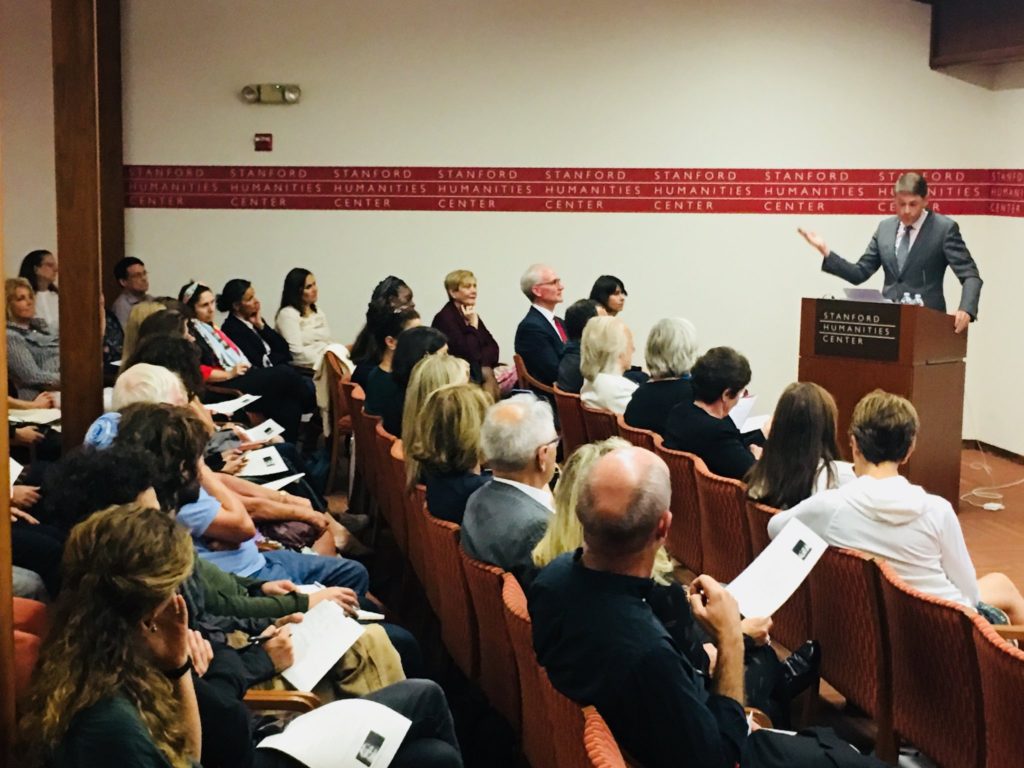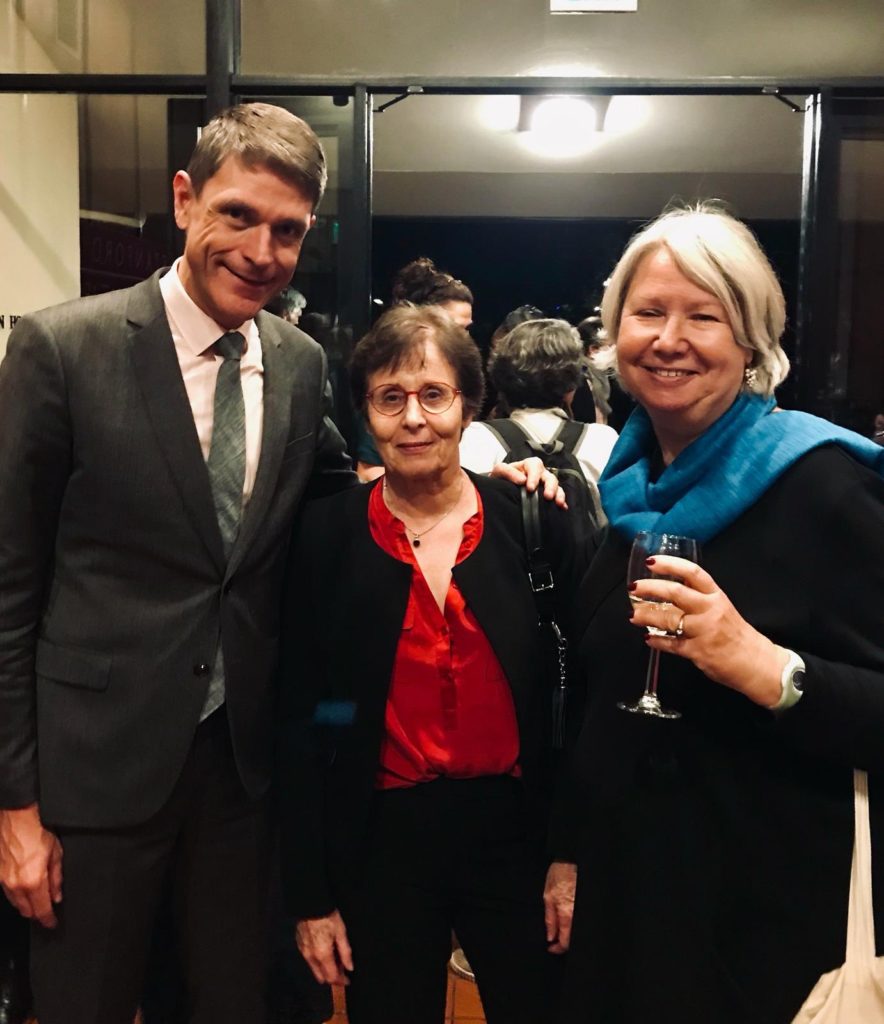“Michel Serres was able to explain astronomy with history, music with mathematics, literature with technology,” said Emmanuel Lebrun-Damiens, French consul general in San Francisco. The occasion was Monday’s wise and memorable day of talks, retrospectives, recollections, (short) film clips of the late great French thinker Michel Serres, who died June 1. He was a Member of the Académie Française, a Great Officer of the Legion of Honor, a Graduate of the École Normale Supérieure, and a Stanford professor.
Audrey Calefas-Strebelle led a seminar remembering the French thinker, before the major evening event featuring a talks by Serres’s daughter, Hélène Weis; his publisher Sophie Bacquart; Stanford President Marc Tessier-Lavigne, Stanford Professors Robert Pogue Harrison, Dan Edelstein, and Cécile Alduy, among others. The long afternoon ended with Mouton Cadet , tea sandwiches, chocolate dipped strawberries, and piles of tiny little cakes.
“He was a son of the French Enlightenment, a strong voice of humanist ideas, the illustration of the French meritocracy, and the embodiment of the core values of our Republic.”
From his Emmanuel Lebrun-Damiens’s talk:
Michel Serres was a French character, and like the best French characters, such as Cyrano de Bergerac and d’Artagnan, he was from Gascony. Born in a rural village to a modest family, he grew up during World War II and the dawn of the nuclear age with Hiroshima and Nagasaki. He witnessed and theorized the fall of scientific positivism, as well as blind faith in scientific progress. Many of his concepts trace back to his childhood, his attachment to the land, to spaces, and his infinite love of peace. This period of time marked him profoundly, and he liked to say, “my body was made of war, so my soul was made of peace.”
Like d’Artagnan, Michel Serres needed to see the world and explore the horizon. He remained a ‘real Gascon,’ meeting with the most influential intellectuals, still honoring his roots and devotedly maintaining his terroir accent, one that gave a poetic tone widely reflected in both his French and English works.
Through his travels, he carried his insatiable curiosity. Despite being faced with a world shaken by anxiety and turmoil, he always kept the calm, optimistic, and clear look of a child through his deep green eyes.
Today, amid fast transformations, interpreted by many as a crisis, this 88-year-old scholar saw an exciting and unprecedented ground for creation and social progress. We live through the fourth industrial revolution, which marks the beginning of a new era, a period of technology and digital innovation and the development of a new historical model.
In Petite Poucette, the main character “Thumbelina” is named in reference to her ability to use her thumbs to send messages with her hands. To Stanford students, who are today’s Thumbelinas, Michel Serres said: “The future looks good, and I would like to be eighteen, Thumbelina’s youthful age, since everything is to be made, everything is left to invent.”
This was the message of a man from an older generation that knew the bygone era of the industrial wars, totalitarianism, and the constant nuclear threat, to a younger era faced with new challenges, such as climate change. It is a message from the past to the future, going over the heads of barking crowds feeling nostalgic for the times before the computers – the crowds yelling “it was better before,” the crowds criticizing the youth of the world, mocking their tears and their fights. To them, Michel Serres would say, “You long for the past. I was there in the past. I can tell you, it wasn’t any better.”
The Thubelinas should not be afraid to be young and to be different. For Michel Serres, true creation comes from difference, from the clumsy, the unalike, the left-handed, the weirds, the mocked, the seemingly ill-adapted. They are the true creators, inventors, and artists. They are the ones who will redefine the boundaries of a reality that does not fit them. And they are, now, the majority.
With the Stanford News Service, I was honored to do the only interview of him, ever, in English. It’s below:
Tags: Emmanuel Lebrun-Damiens, Hélène Weis, Michel Serres, Sophie Bacquart




